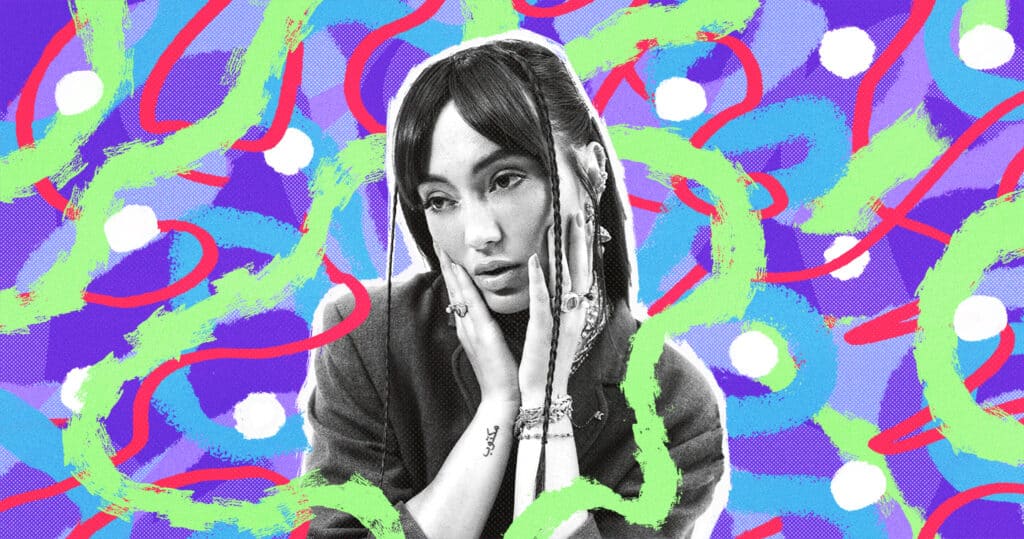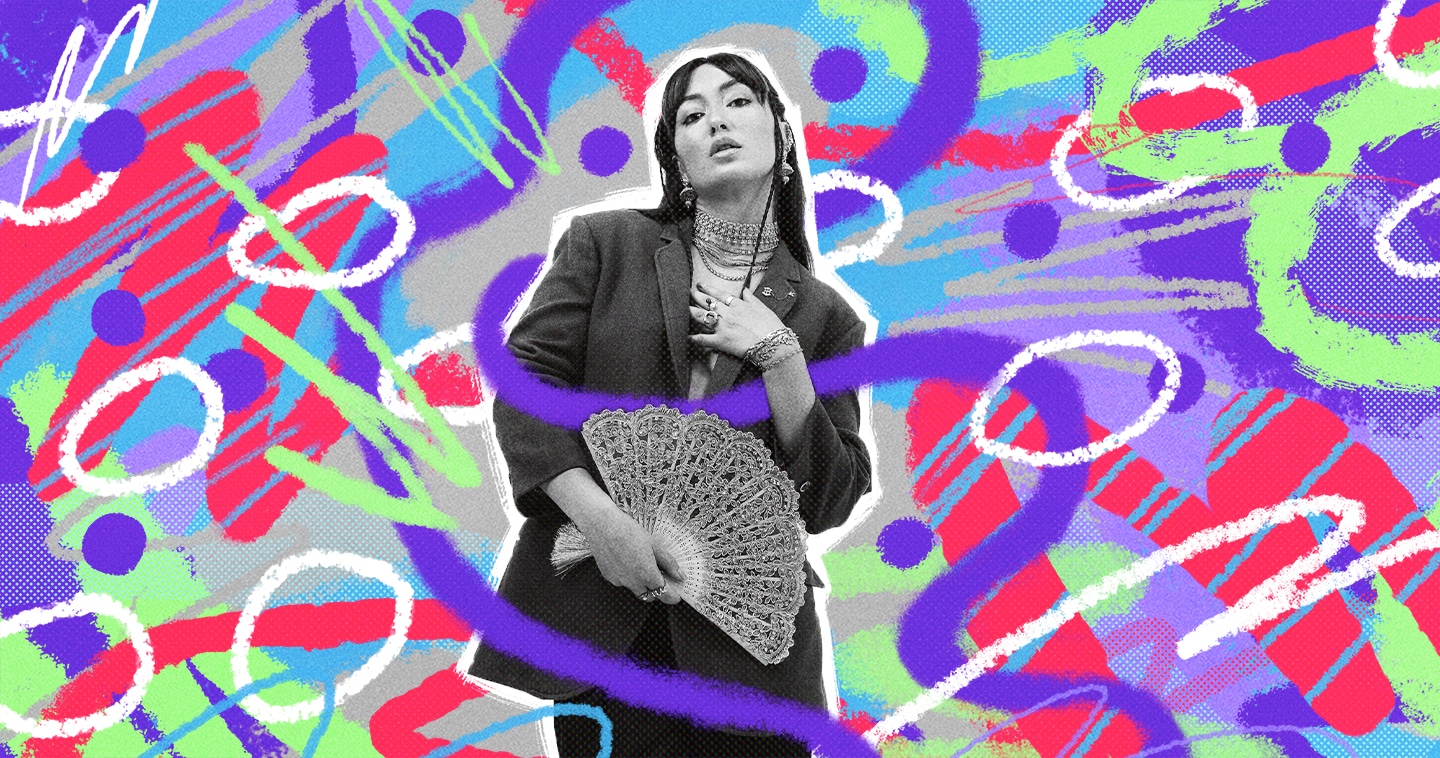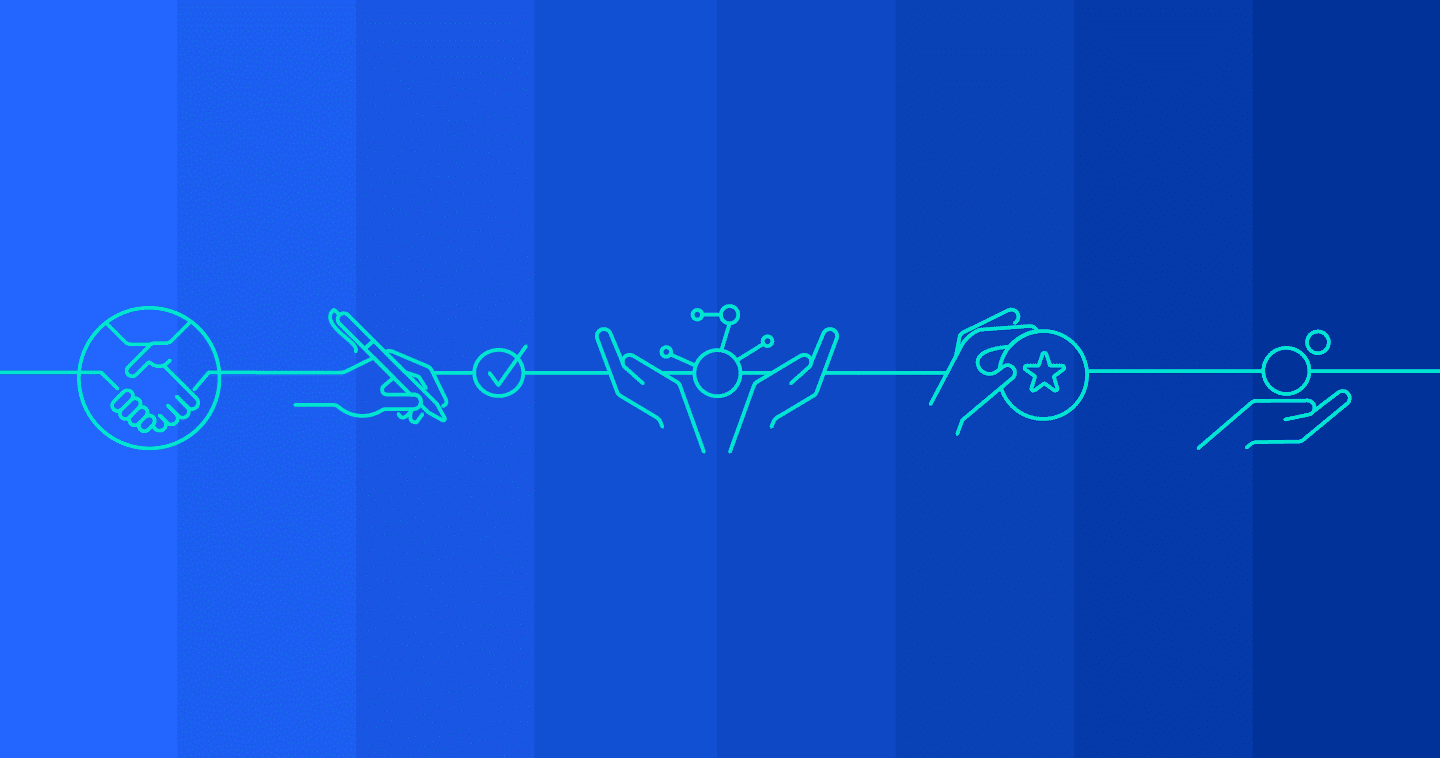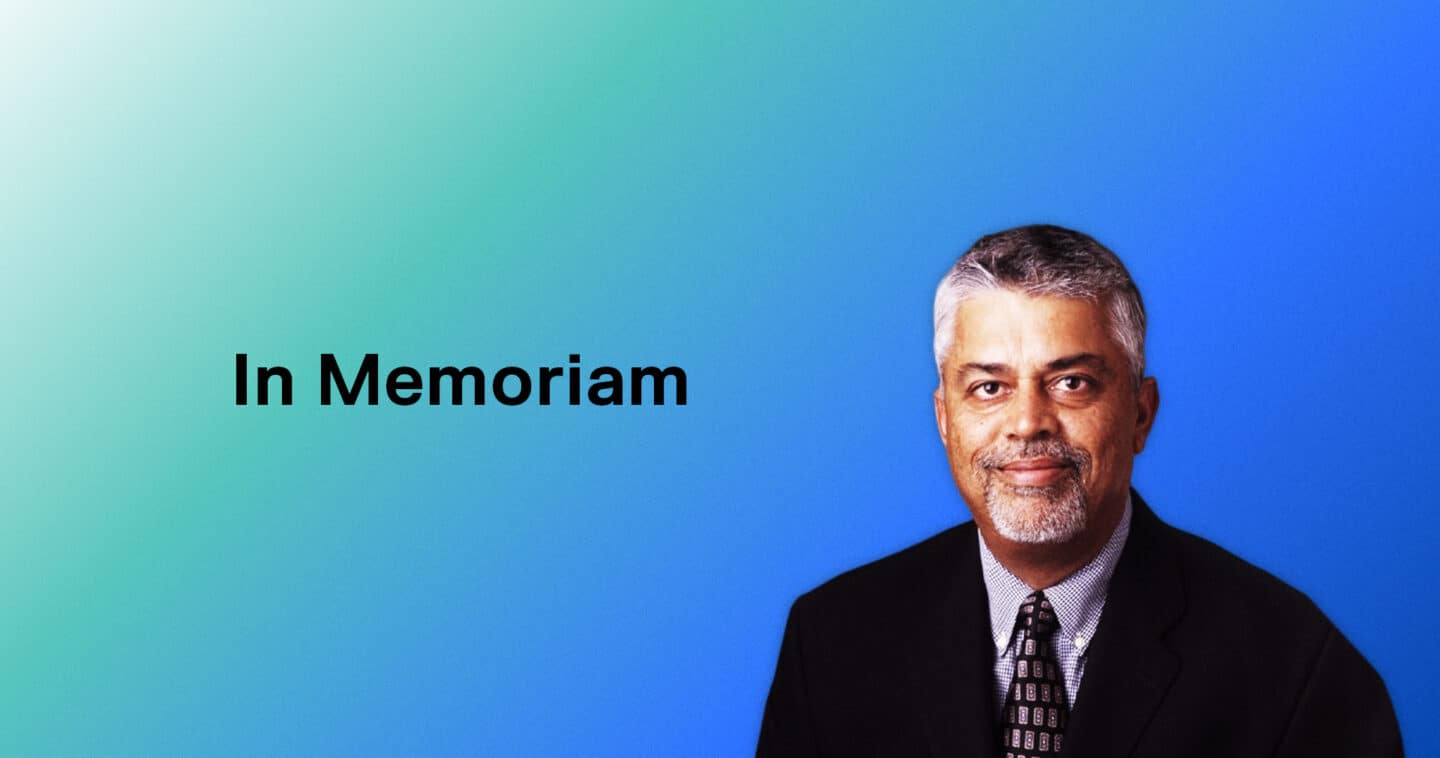What’s Your Create: Ouida
For singer-songwriter Ouida, music was always the answer. Dancing and acting were fine, but singing opened her up like nothing else could.
“Music has always been intuitive to me. “I could be vulnerable and honest, really unpack things about myself,” she said.
Despite the confines of the video call, pale and unassuming, Ouida’s intuition and surety of purpose pour out of her. That’s how she overcame false starts in her career, connected with her identity, and found purpose in empowering others. Her craft is much more than her hottest single or latest EP—it’s a matter of meaning.
The gift of sound and vision
Born into a family of artists, it was Ouida’s grandmother that left the strongest impression. Her grandmother was an entertainer in the truest sense of the word, singing in smoky jazz lounges all over San Francisco. Nearly everywhere she went, a young Ouida followed, sipping Shirley Temples while her grandmother belted on the grand piano.
“My grandmother was a lively, joyful person; glittery and glamorous. I always saw a bit of myself in her,” Ouida intimated.
“I have a lot of memories singing with my grandmother, singing Frank Sinatra or Billy Holiday duets together. She didn’t just teach me how to sing, she taught me how to make memories with my loved ones.”
That love for her grandmother led to a love for the music, too. Ouida loved the powerful voices, the vulnerability, and the storytelling of R&B. Ella Fitzgerald, Billy Holiday, and Amy Winehouse presented a template for her; one that championed expression and the nascent humanity in all of us.
“Artists like Amy Winehouse capture the essence of the music, you can’t help but hear and connect with their story through the music. I’m drawn to music that feels human,” Ouida said.

Finding the why
Filled with love and following the R&B tradition, Ouida chose to pursue a music career. Despite a strong foundation to build from, she still faced many challenges. Family struggles, dropping out of art school, and difficult managers led to false starts and unexpected pauses.
At the same time, Ouida felt pressure from the music industry to commodify her music and her identity to be successful. For the young Filipino- and Irish-American, her music became a place where her identity was questioned and commodified.
“I was constantly being asked to define myself in a world that demanded that identity to be digestible and easy to sort,” she said. Ouida paused for a moment, then, reflecting before she continued.
“If you don’t fit into a box, there’s a desire to fit into one, to perform the politics of fitting into preexisting ones. It feels like there’s always this contention, this question if I belong and deserve to take up space in these communities.”
This pressure came to a head in 2020 when she was divorced from her music career and locked inside during the pandemic. Ouida plumbed those feelings and reflected on her tribulations. As the world slowed to a halt, she committed herself to reexploring her art and identity. It was only then that she connected with her motivation for creating.
“Music is where I first learned how to express myself, how I learned to be transparent. I let myself reconnect with music, the intrinsic appeal of music, and how it informs my identity and my world,” she said.
“That’s when I noticed a shift in how the world responded to my art. I settled into myself, not as a financial product, but as an artist and as a person.”
A maturing sound
As Ouida settled into herself and embraced her independence as an artist, she began leaning more into technology to leaven her craft. Her first single, “Coffee,” was produced in her closet on a laptop during the height of the pandemic, a testament to the power of modern digital production tools.
“Historically as a singer-songwriter, I always played guitar or piano and after a while, it felt like everything was sort of sounding the same. I wouldn’t have been able to put out that song or go through the process of falling in love with music again without those tools, without those new sounds,” said Ouida.
From the moody drums in “For The Show” to the sultry harmonies in “Nice To Meet You,” Ouida’s leaned into digital production to develop her sound. It’s more than following the greats, it’s adding layers and texture to her work and speeding up iteration.
“Having a keyboard and testing a new drum sample or splicing in a new synth has been huge for me. My whole digital audio workstation has streamlined my process and lets me get demos in the hands of people so quickly,” she said.
With more time on her hands, Ouida’s been able to expand her creative vision outside of music. She’s co-produced her music videos and has time to explore woodworking and creative writing. She’s even taken the opportunity to return to her roots and serve her community in the Bay.
A matter of meaning
While writing and producing “Coffee,” Ouida dove into her identity as a Filipino woman. Through the process of making the song and music video, she felt both accepted and alienated.
“Because of my mixed-race identity, I’ve been met both with like a very warm generosity and contention about how authentic or how valid my experiences and identity are as a Filipino person,” she said. Despite the gatekeeping and politicking, Ouida embraced her heritage and the Filipino diaspora through in music video for “Coffee.”
“The music video was this total exploration of Filipino identity, so the women that I cast were Filipina and mixed Filipina. So many of them were like me—they hadn’t made some kind of public declaration of this identity, they felt like a little unsure if they were even allowed to,” she explained.
“It felt so freeing for all of us to celebrate our heritage in that way. It was almost addicting, really.”
Ouida’s eyes sharpened as her why comes into focus. It was more than connecting to her identity or her experiences, it was helping others do the same. Because of that experience, Ouida founded the Alpás Artist Circle, a collective focused on empowering independent artists to create and explore their identities through art.
“I wanted to feel more connected to a community of artists and the purpose that we serve by being vulnerable and transparent, and that’s what Alpás is about” she explained.
“I wanted to create a space where an independent artist, someone working by themselves to create meaningful art, can get access to all the tools and resources they need to make their vision a reality.”
From sipping Shirley Temples to producing her own music, Ouida has grown up alongside her creative practice and wants to instill that capability in others, too. Now, more than ever, her work is focused on something more than commercial relevance.
“At the soul of it, everything I make is a commitment to the most honest and pure version of myself and what matters to me.”




